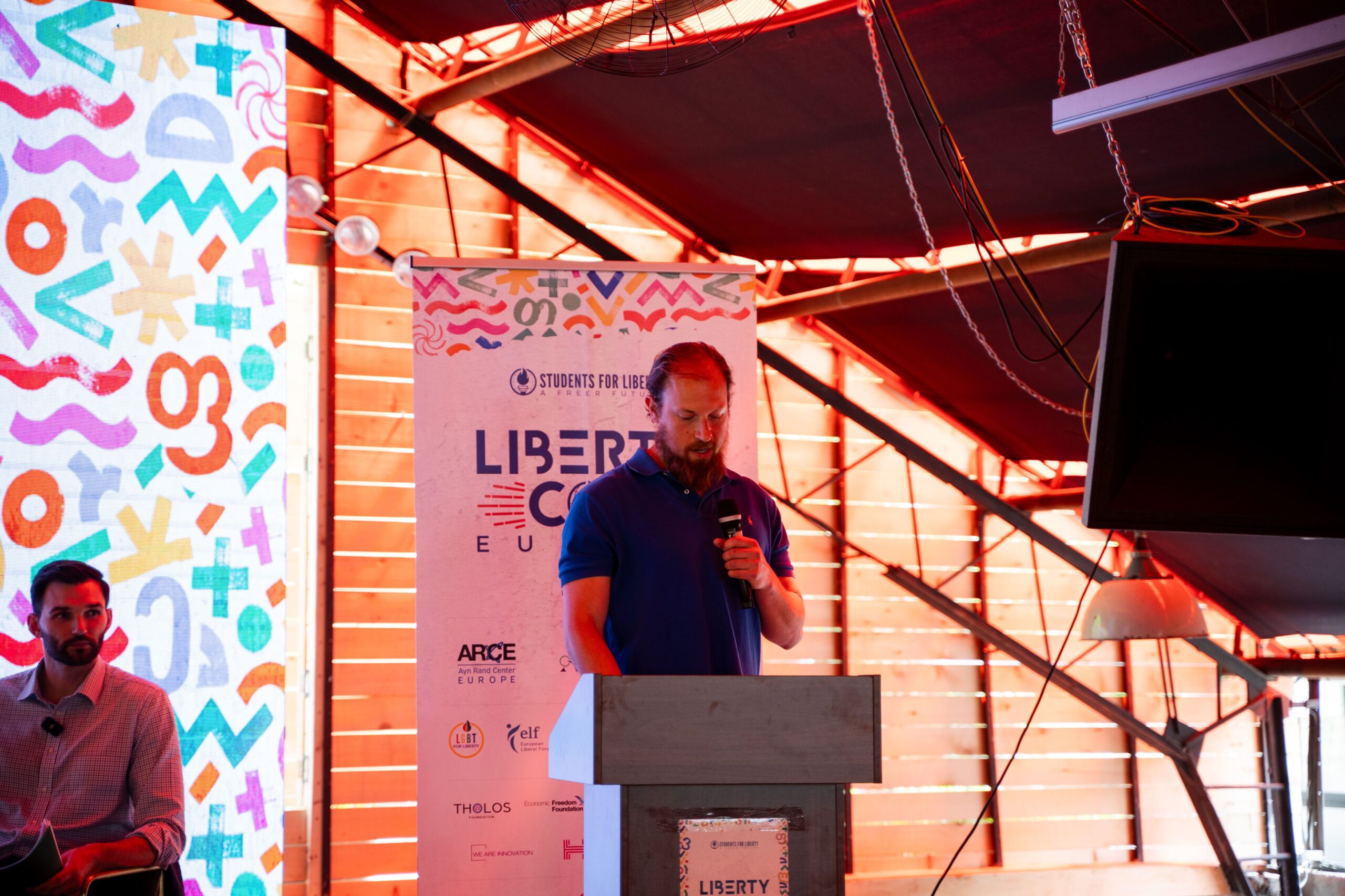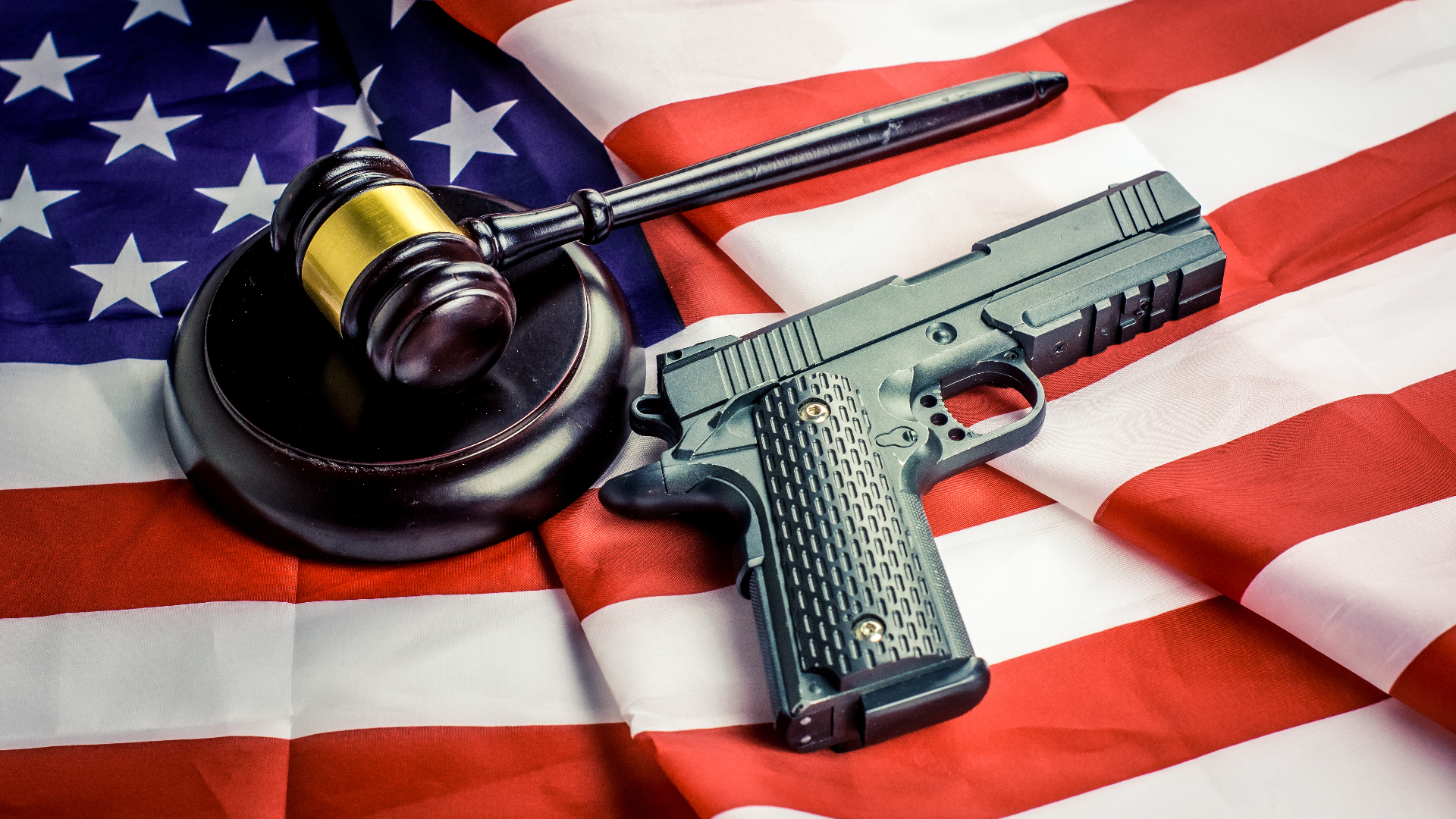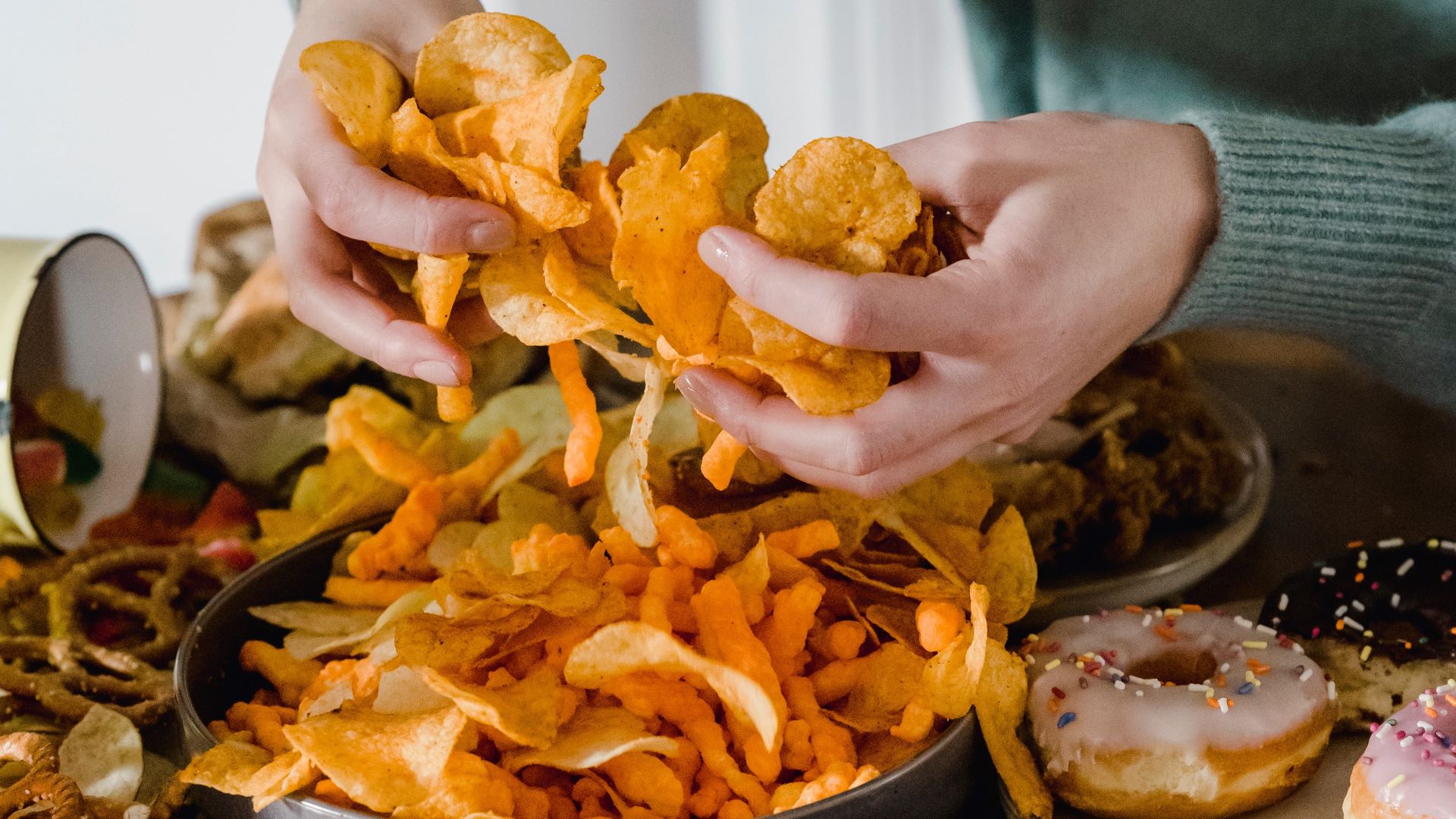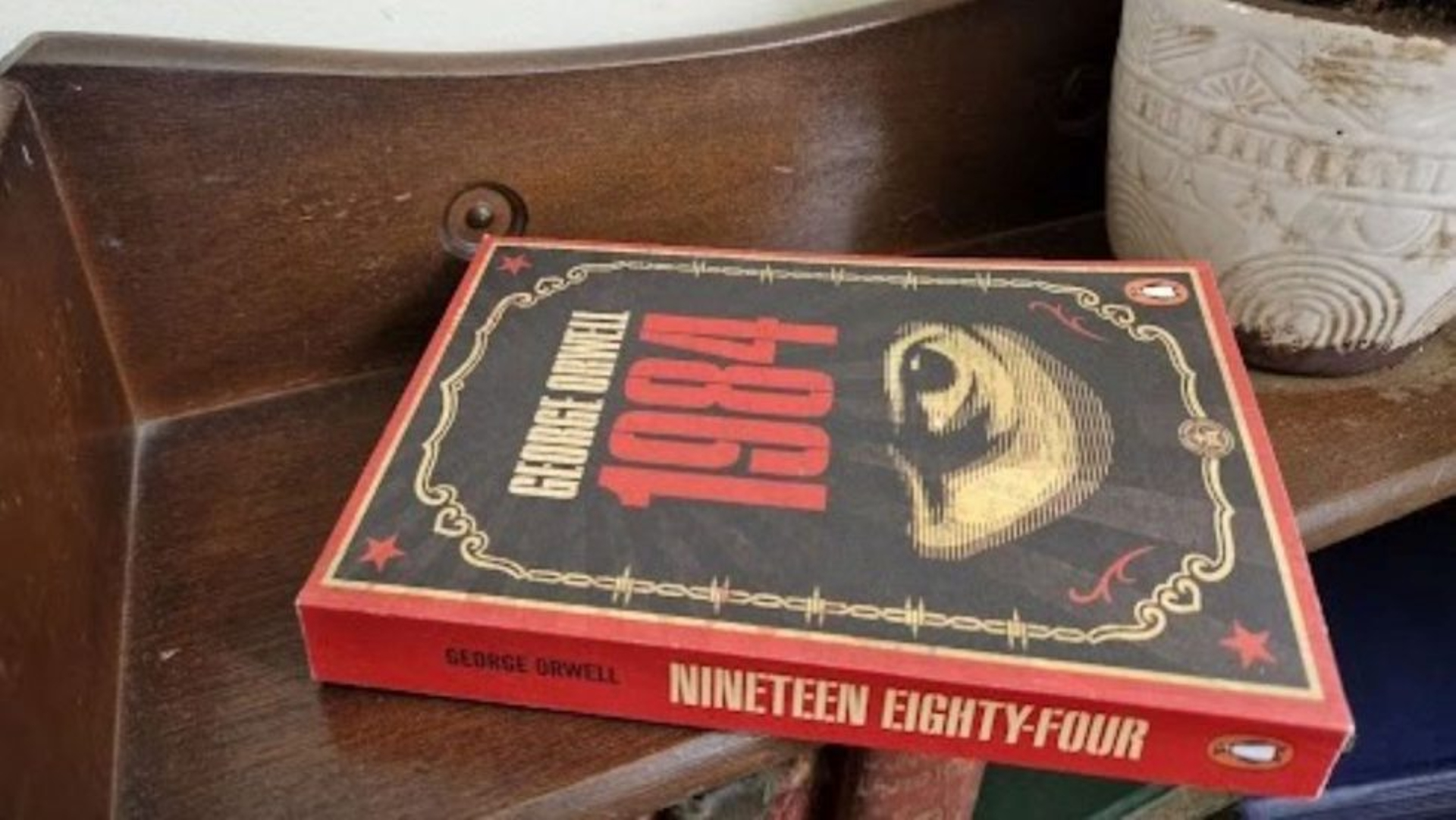
Trevor Kraus
Story Editor
Students For Liberty
Trevor is a writer, editor, and diehard sports fan. He grew up in St. Louis, Missouri, and after a stop in Madrid, Spain, where he taught high school English, he currently lives in Chicago. He believes in the beauty and morality of free speech, free markets and free people. On weekends, you’ll find him traveling and golfing — or some combination thereof.
Blog Posts

Foreign Agents Bill in Georgia: What to Know and Why It Matters
May 16, 2024
|Civil Liberties
I was wearing sandals. I was wearing sandals … and I was scared. That’s why, when I had the chance to protest in front of the Georgian parliament one night in Tbilisi, I didn’t go. Because … What if I had to run? Now, I’m regretting it. I think. On Tuesday, May 14, 2024, 84 members of Georgia’s parliament voted to pass a bill that will require organizations that receive more than 20% of their funding from foreign sources to declare themselves as such. Only 30 members voted against it. The terminology is a tell: As I learned from the safety of a hotel bar about a mile from

An American at LibertyCon Europe: What I Learned
May 9, 2024
|Civil Liberties
You won’t believe how much this here dumb American, pictured above, learned as one of the MCs at LibertyCon Europe, from April 19-21, 2024. In no particular order: I learned that Local Coordinator Jack Hare is a tall, mustachioed Brit who always wears a brown blazer, whom some of his friends call the Ron Swanson of Students For Liberty. And I learned that he rides a government-funded bus in his hometown of Brighton, that it’s usually empty except for him, and that the absurdity of this situation is one of the reasons he wants to fight the local aldermen. I learned not to eat

Searching for the Heart of LibertyCon Europe: A Recap
|Education
If, after a long flight, you stepped wearily off the plane and squinted into the sun; if, bone-tired, you slogged through the empty airport concourse; if you then wondered whether you were in the right place at all, whether the pilot had made some horrible mistake, or whether you had in coming, your doubt and that fatigue should have dissipated as soon as you emerged from passport control. That’s where you saw the ad for “the leading investment bank in Georgia.” Galt & Taggart. For those who traveled to Tbilisi for the 12th edition of LibertyCon Europe, that sign was the unofficial

How gun control might be seen 100 years from now
June 1, 2023
|Civil Liberties
Author’s note: The book Lies My Teacher Told Me by James Loewen was assigned to me during my senior year of high school. I still reflect on its lessons and have found them applicable not just to the past, but, in some cases, to the future. The book analyzes 18 different U.S. history textbooks and is scathing in its assessment. As stated on the back cover: “Marred by an embarrassing combination of blind patriotism, mindless optimism, sheer misinformation, and outright lies, these [text]books omit almost all the ambiguity, passion, conflict, and drama from our past … From the truth about

Rob Your Neighbor: the philosophy of publicly funded projects
December 19, 2022
|Basic Economics
You’ve probably heard of “Rob Your Neighbor.” You might know it as “White Elephant” or another name, but the gist of it is: a family gets together for the holidays and everyone brings a wrapped gift — usually with a limit of, say, $30. All the gifts are put on a common table, or under the Christmas tree, and each family member draws a number. Number 1 gets to choose first. She chooses the biggest, or shiniest, or most interesting-looking gift, and opens it in front of everyone. Number 2 then has two options: he can either “steal” that gift, or select a new one from the

Why economics is not just graphs and charts
November 29, 2022
|Basic Economics
What American universities are doing to economics students is shameful. I can’t speak to universities in other countries, but I’ll bet the same applies in most of them. When I was a freshman in college, for example, I enrolled in a class called Econ 1051. I wasn't interested in economics; it was just a prerequisite for my journalism major, but obviously I still wanted to do well. I still have many of my notes from that class. Here’s the study guide I put together for an exam: I’m pleasantly surprised to see some mention of concepts like division of knowledge/labor, comparative

Western cultural myths about China prevent us from seeing reality
October 1, 2022
|Philosophy
One way or another, the “wise, old Chinese man” became one of Western pop culture’s oldest tropes. I think part of the trope comes from two fictional characters: one is Charlie Chan, whose alliterative name even evokes his heritage; the other, Mr. Miyagi, gave us the memorable tagline “wax on, wax off,” even though he’s actually Japanese. His wisdom and power became associated with Eastern culture. Even the sitcom Seinfeld poked fun at the trope way back in 1994: https://www.youtube.com/watch?v=Es5na8WQLJI I think that trope is a big part of why we in the

How the government is fueling the obesity epidemic
May 31, 2022
|Lobbying & Special Interests
Americans are famous for their poor diets. We eat far too much high-fructose corn syrup, overly processed foods, and one of our most iconic corporations, McDonald’s, is the poster-child for junk food. I was no exception as a child. My diet consisted of macaroni and cheese, fish sticks, pizza, ice cream, potato chips, and little else. And of course, McDonald’s. But, like so many Americans, I didn’t want anything to do with lettuce, pickles, and onions, so I ordered plain cheeseburgers: bun, meat, and cheese; they came with a Coke, naturally. I was young and

1984 is as relevant as ever in 2022
May 13, 2022
|Censorship
There are a few books that almost every American high schooler has to read. Lord of the Flies is one. The Catcher in the Rye seemingly becomes every freshman’s favorite. Then there’s To Kill a Mockingbird, The Great Gatsby, and Huck Finn. But there’s only one book I was assigned in high school that I go back to again and again: George Orwell’s 1984. I wound up reading 1984 twice more, including once in a foreign language — I remain fascinated by Orwell’s appendix on “Newspeak.” Did it secretly signal a different, more uplifting

Favelas and rental cars: lessons about property rights
April 26, 2022
|Basic Economics
My friend and I were road tripping through the Southwestern U.S. and were passing through Utah — the prettiest state in the U.S., if you ask me. My friend had rented the car instead of using his own. He turned to me and said, “I’ll Venmo you for half.” “Sure thing,” I replied. “But just out of curiosity, why did you rent a car instead of using yours?” “I don’t wanna put all these miles on mine, man. The rental…we can just beat the crap out of it.” “Fair enough,” I said, but suddenly I was no longer admiring the mountains; my mind was spinning. He

Legends of Liberty: Thomas Sowell
November 11, 2021
|Liberty
Last week, we wrote about Frederic Bastiat, the king of communicating economic and philosophical ideas in simple, direct (and often funny) ways. Of course, in the 19th century, Bastiat’s medium was the printed word. But if you had to find an heir to his throne in the social media era, Thomas Sowell would be a leading contender. The only catch is that, having been born in 1930, Sowell isn’t on social media himself. For a lesser writer, economist, and social theorist, that would be a problem. Sowell, however, throughout a career that spans 51 books (including an astonishing eight since
Liberty, delivered to your inbox!
Want to know more about Student For Liberty’s impact, new initiatives, and other efforts made to advance liberty around the world?
Sign up for our email newsletter to stay connected.
Subscribe Now

